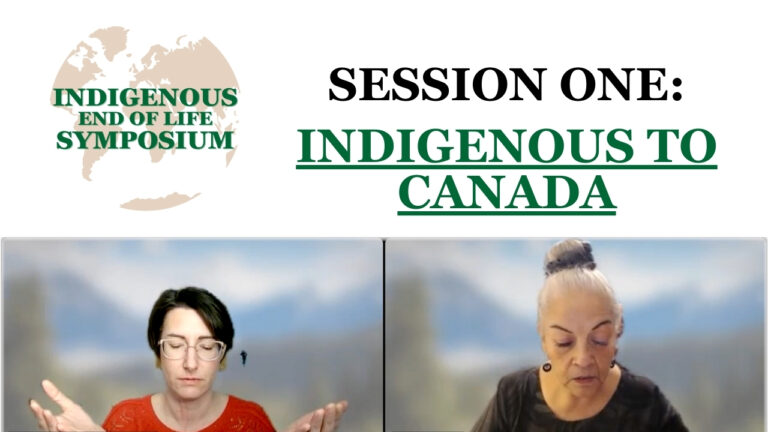
- About
- Programs
- Public Policy
- Resources
- Contact
- Donate
The Indigenous End of Life Symposium aimed to elevate and amplify Indigenous and Aboriginal end-of-life experiences from around the world.
Indigenous and Aboriginal communities are as diverse as they are numerous. This Symposium offered a platform for individual speakers from these communities to offer direct narratives about traditional dying ritual practices.
Our speakers also reflected on how we can ensure that Indigenous communities, nations, and territories worldwide receive the recognition they deserve, especially in crucial areas like end-of-life healthcare. Additionally, they shared the challenges and opportunities they face as they interact with health systems and key elders and advisors in their communities.
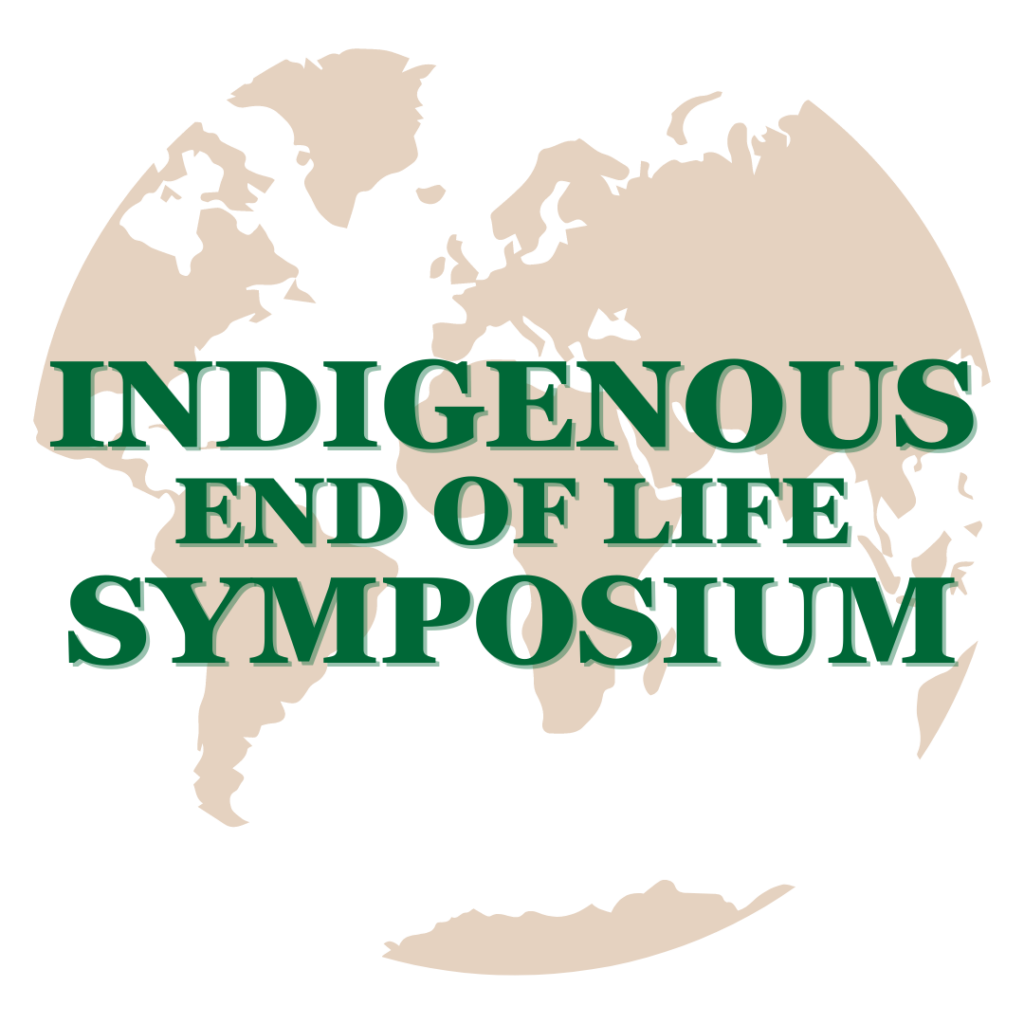
The Indigenous End of Life Symposium aimed to elevate and amplify Indigenous and Aboriginal end-of-life experiences from around the world.

Indigenous and Aboriginal communities are as diverse as they are numerous. This Symposium offered a platform for individual speakers from these communities to offer direct narratives about traditional dying ritual practices.
Our speakers also reflected on how we can ensure that Indigenous communities, nations, and territories worldwide receive the recognition they deserve, especially in crucial areas like end-of-life healthcare. Additionally, they shared the challenges and opportunities they face as they interact with health systems and key elders and advisors in their communities.

The Indigenous End of Life Symposium aimed to elevate and amplify Indigenous and Aboriginal end-of-life experiences from around the world.
Indigenous and Aboriginal communities are as diverse as they are numerous. This Symposium offered a platform for individual speakers from these communities to offer direct narratives about traditional dying ritual practices.
Our speakers also reflected on how we can ensure that Indigenous communities, nations, and territories worldwide receive the recognition they deserve, especially in crucial areas like end-of-life healthcare. Additionally, they shared the challenges and opportunities they face as they interact with health systems and key elders and advisors in their communities.
“Thank you. These are such important conversations, so dense with wisdom. One listening is not sufficient, and will be shared with the collective “
“I’m so grateful for the ones who have held onto their languages, cultures, rituals and traditions. You are guiding all of us towards finding meaning.”
“incredible session, I found the entire thing to be enriching and valuable, I left knowing so much more about a community of people that I knew quite little about before”
“the entire format of the symposium has been fantastic, it’s commendable what you’ve done in putting it together, there’s definitely a need for more of these conversations, I appreciate that it’s difficult from a global perspective but learning simularities and differences from a global perspective are so important, with lots to be learned.”
“I really appreciated the personal stories and the sense of the person in their profession, and I’m reminded of how important relationships are”
“Thanks to you all for an incredibly enriching event – I feel honored to have had the opportunity to listen to all of today’s panelists and am deeply grateful for your collective work.”
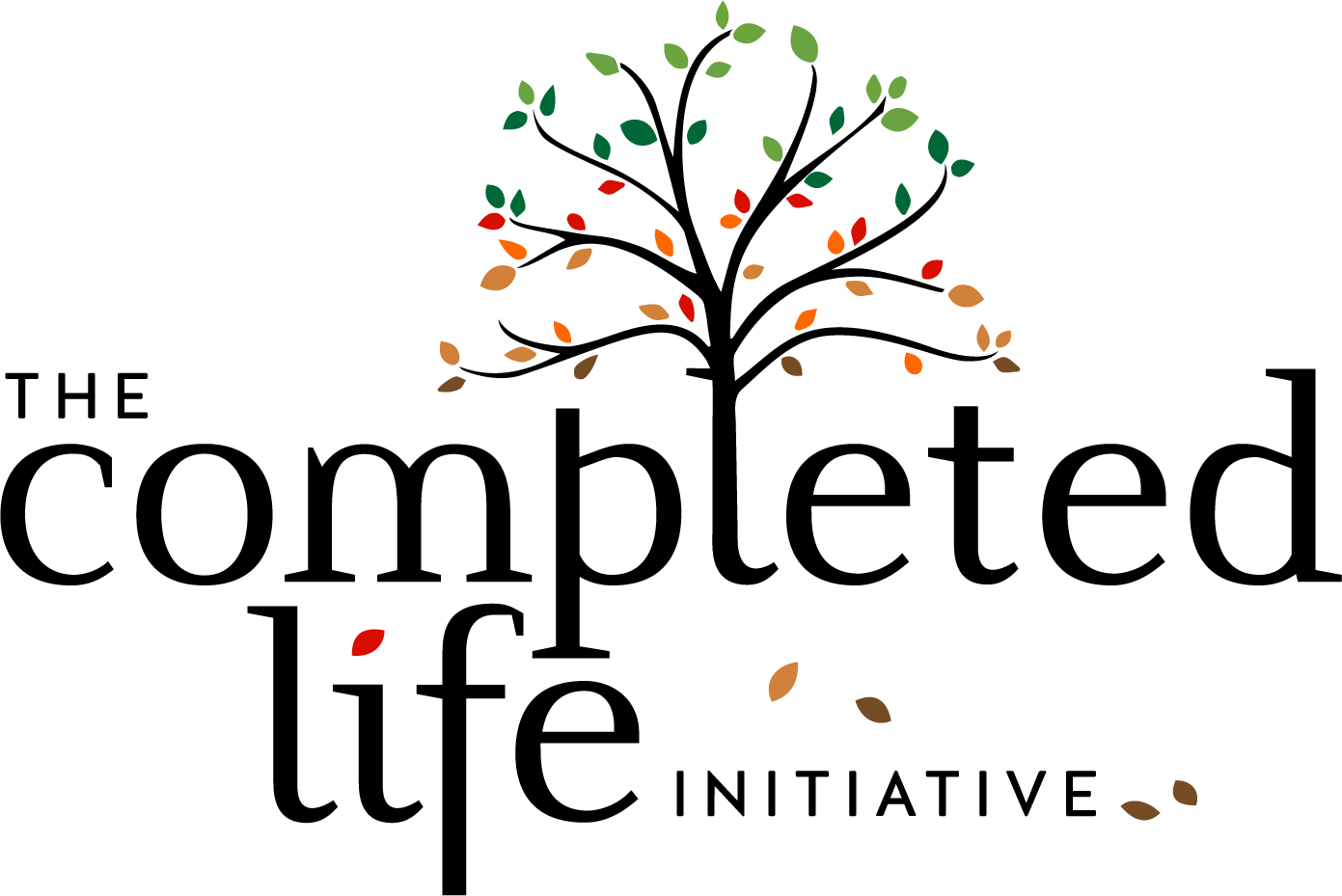
The Completed Life Initiative
155 E. 44th Street, 10th Floor
New York, NY 10017
1-929-456-8008
[email protected]
© Completed Life Initiative. All rights reserved, 2023.

Dr. Neera Bhatia is an Associate Professor at Deakin Law School, Melbourne, Australia. She holds an LLB (Hons) and Master of Laws from the UK, and a PhD in Law from Deakin University. Neera is the author of Critically impaired infants and end of life decision making: Resource allocation and difficult decisions (Routledge, 2015). She has published widely on contemporary issues in health law and bioethics. Her research interests are in end-of-life decision-making for critically ill infants and children, organ donation, voluntary assisted dying, definition and determination of death, and emerging health and reproductive technologies.
Neera actively engages with the wider community as an expert commentator in the media on topical issues in health law. Her profile can be found here. She teaches Health Law in the undergraduate and postgraduate programs at Deakin University.
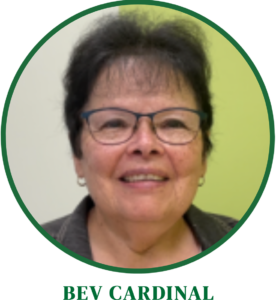
Bev Cardinal (née Peltier) grew up in Regina, Saskatchewan and has lived and worked in this Canadian prairie city her whole life. She’s a descendent of Red River Métis who settled in southeastern Saskatchewan in the early 1700’s as part of the fur trade. These families established a number of “road allowance” communities throughout the Qu’Appelle Valley, and the Peltier and Cardinal families are over seven generations strong in this territory.
The majority of Bev’s adult life has been spent studying, working and volunteering in areas of Indigenous education and post-secondary education, Indigenous governance and community development, and practicing culturally-appropriate, restorative conflict resolution and mediation.
A primary interest for Bev has been to work with organizations and agencies seeking to make genuine change and improvement in their work with Indigenous communities.
One example is her work with the Canadian Virtual Hospice in their work in the areas of First Nation and Métis-specific end-of-life care. Bev notes that the most significant, impactful, and formative experiences and education she has directly benefited from have been while engaging with traditional Elders, Knowledge Keepers and Old Ones. This cultural knowledge continues to guide and inform her in all aspects of her life as she lives and practices her culture daily.
Bev has an adult son, daughter and granddaughter and they all reside in Regina. She is an avid gardener and also participates in Michif language classes and genealogical research in her spare time.
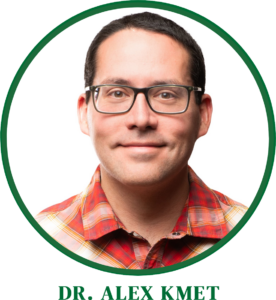
Dr. Alex Kmet is a member of the Métis Nation of Alberta and doctor practicing rural and remote medicine in Yukon, Canada. In addition to his work as a specialist palliative care physician, he provides chemotherapy and cancer care along with anesthesia services in the operating room. He’s worked with Médecins Sans Frontières in both Central African Republic and Iraq and volunteers on the board of directors with a local NGO who provides grief and bereavement support to Yukoners.
Through his rural upbringing and work in Canada’s North, Dr. Kmet has witnessed the lasting trauma and negative health impacts caused by policies of forced assimilation and the residential school system. He works in a territory of 14 First Nations with 8 language groups and has seen firsthand the importance of honoring culture, tradition and connection to both community and the land during the end-of-life journey.
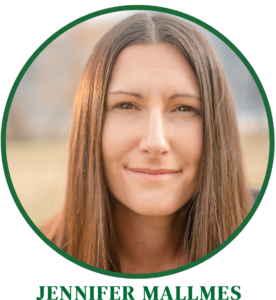
Jennifer Mallmes has spent the last 20+ years as a caregiver and an advocate for quality end-of-life care in Canada. She is a mother of 5 and resides in the Kootenay area of BC. Jennifer began her education in Nursing; however, she left that field to pursue a degree in Gerontology from Simon Fraser University, where she focused her studies on equality, aging and the end of life. Jennifer has worked in community home care, where she found fulfillment in helping support people to remain at home near the end of life.
Jennifer is the co-founder of the End of Life Doula Association of Canada, the creator and an instructor of the End of Life Doula program and Indigenous End of Lifer Guide program at Douglas College. Currently, Jennifer is completing a Master’s in Interdisciplinary Studies and Adult Education at Athabasca University. Jennifer’s passion for quality end-of-life care has inspired her to consciously empower others to live and die well.

Dr. Kealohaku’ualohaku’upoki’i “Poki’i” Balaz is a Public Health Executive Leader who has dedicated her career to advancing health initiatives through innovative strategies in healthcare policy and systems change, with an emphasis on aging and advocacy for underserved and aging populations. As a Native Hawaiian, geriatric nurse practitioner, caregiver to her father who has Alzheimer’s Disease and her nephew who is autistic, Dr. Balaz has seen firsthand how a cultural approach to caregiving improves health outcomes for aging individuals as well as how cultural values motivate the surrounding community to participate in a continuum of care.
She is a board member of the Alzheimer’s Association Leadership Board, recipient of the Alzheimer Association’s Advocate of the Year Award, Pacific Business News 40 under 40, Hawaii Business Magazine 20 for the next 20, Certificate of Honor from the Hawai’i State Legislature, and Association of Hawaiian Civic clubs as the first person from Hawai’i to be selected for the Obama Foundation Scholars Program. Dr. Balaz is a double board-certified family nurse practitioner with a Doctorate in Nursing Practice from the University of Hawai’i at Hilo, holds an Executive Master of Business Administration from Shidler College of Business at the University of Hawaiʻi.
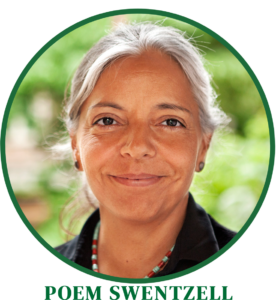
Poem Swentzell, LMSW, LMT is a member of Santa Clara Pueblo in northern New Mexico. She is both a hospice social worker and a massage therapist with over 30 years experience. She presented at the NASW-NM 2017 Conference on her work with Indigenous people and death and dying. She currently works with seniors at Santa Clara Pueblo and continues to support people with end of life issues.
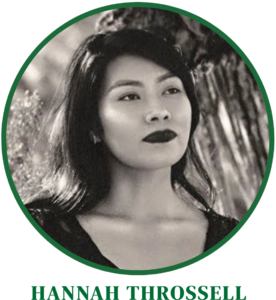
Hannah Throssell is an enrolled member of the Tohono O’odham Nation with strong familial ties to the Navajo Nation. She earned her BA in Psychology and Gender and Women’s Studies from the University of Arizona, where she conducted Public Health Research in collaboration with Arizona Tribes. Following this, she worked in Community Health Work within Urban Indigenous populations.
Currently enrolled in Columbia University’s Master of Social Work Program in New York City, Hannah is set to graduate in May 2024. Alongside her academic pursuits, she is deeply committed to community advocacy and activism. She has collaborated with various organizations to champion Indigenous rights and sovereignty, emerging as a powerful advocate for marginalized communities. Currently, she is engaged with the Urban Indigenous Collective and the National Congress of American Indians, furthering her mission to create a world where Indigenous peoples are respected, empowered, and able to thrive.
Beyond her professional and academic endeavors, Hannah remains actively involved in her O’odham Himdag (traditions) and is a dedicated mother.
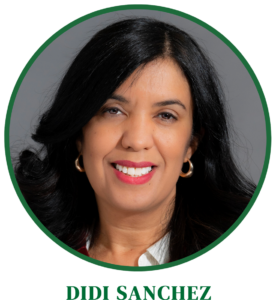
Mrs. Danurys (Didi) Sanchez, MS is currently a Senior Research Staff Associate at the Taub Institute for Research on Alzheimer’s Disease and the Aging Brain at Columbia University Irving Medical Center. For the past fifteen years, she has been the Project Manager of a longitudinal study on memory and aging, the Washington Heights-Hamilton Heights-Inwood Columbia Aging Project (WHICAP), a community-based longitudinal study of aging and dementia which began enrolling patients in 1989 and has followed more than 8,000 older adults residing in Northern Manhattan, NYC. Didi has led initiatives to engage the Spanish-speaking and African American community in Alzheimer’s Disease research, dissemination, and education on brain health. As she became more involved in community education, her focus shifted to the limited knowledge of value-based advance care planning and barriers and access to end-of-life care throughout the target communities.
After working for more than two decades as a Project Research Manager, Danurys saw a need for establishing an organization that centered community-led approach to building and fostering equitable relationships between medical and research institutions and community stakeholders. Communities for Responsible Bioethics, LLC, was founded in March 2021 to increase knowledge of how bioethical principles impact end-of-life decision-making and can guide communities to shape initiatives that have the possibility of improving their clinical standard of care and overall well-being.
Earlier this year, Didi graduated from the master’s program in Bioethics at Columbia University’s School of Professional Studies and endeavors to improve communication on end-of-life decision-making between physicians and patients through an ethical framework based on trust, professionalism, and compassion.
Danurys lives in New York City with her husband, and two daughters, Valentina and Camila, and enjoys taking nature walks in historic trails of Inwood Hill Park, home to the only forest on the island of Manhattan.
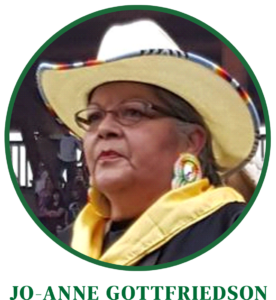
Jo-Anne Gottfriedson, a proud member of the Tk’emlu’psemc Nation, holds deep roots in her Indigenous heritage. A devoted mother to two daughters, a traditionally adopted son, and a grandmother to five grandsons and a beautiful granddaughter.
Jo-Anne earned her degrees from Simon Fraser University (BGS and Post Baccalaureate Programs graduate) and is a Certified Provincial Adult Instructor/Teacher with standing in the BC College of Teachers-BC Adult Instructor Certified. While she values formal education, she credits her ‘traditional’ education to the unwavering commitment of her parents, grandparents, and elders along her journey. Jo-Anne strongly believes in the holistic, traditional approach to teaching that combines both ancient wisdom and modern methods to pass on language and culture. Her retirement from teaching at the Sk’elep School of Excellence after instructing Secwepemc language and culture for five years marked a distinguished chapter in her career, impacting over 300 students and a staff of twenty-two.
Beyond education, Jo-Anne has been a driving force as the Day Scholar Coordinator for Tk’emlúps te Secwepemc for the past 11 years, and she served as the Executive Chair of the Day Scholar Certified Class Action for Tk’emlúps te Secwepemc, Sechelt First Nation, and James Cree. A devoted advocate, she is passionate about ensuring that all future generations have access to the knowledge, healing, traditions, and language of their ancestors. Recently contributing to the Indigenous End Of Life Journey Program, Jo-Anne recognizes the importance of infusing indigenous approaches into the grieving process, aligning with her broader mission to advance cultural and spiritual ways into life’s final earthly journey and the heavenly journey of peace.
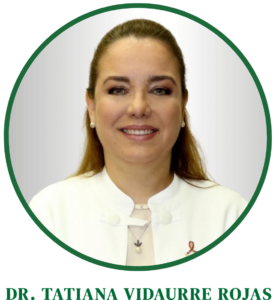
Dr. Tatiana Vidaurre Rojas – Médico Oncólogo, Docente e Investigador del Instituto Nacional de Enfermedades Neoplásicas – INEN y de la Universidad Peruana Cayetano Heredia – UPCH, Perú. Doctor Honoris Causa, Universidad Toulouse III – Paul Sabatier, Francia. Presidente de la Sociedad Peruana de Cancerología. Desarrolló e implementó el Plan Nacional para la Atención Integral del Cáncer y el Mejoramiento del Acceso a los Servicios Oncológicos en el Perú – “Plan Esperanza, importante política pública de prevención del cáncer y de acceso y cobertura universal para el cuidado integral del paciente oncológico. Es Fundadora del Club de la Mama del INEN, principal organización de pacientes y familiares para el control del cáncer en la mujer.
Otros Datos:
Magister en Salud Pública con Mención en Gestión de Servicios de Salud – UPCH, Perú, Magister en Oncología Molecular – CENIO, España, Especialista en Oncología Médica – INEN / UPCH, Perú, Especialista en Administración de Salud – UPCH, Perú; Especialista en Salud Pública con Mención en Gestión de Servicios de Salud – UPCH, Perú, Especialista en Auditoría Médica, FIDE – UNSLG, Perú, Research Scholar Training in Molecular Oncology, National Institute of Health / National Cancer Institute (NIH/NCI), Bethesda – Maryland – United States.
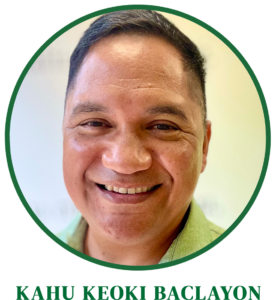
Kahu Keoki Kīkaha Pai Baclayon is an experienced healer of lāʻau lapaʻau (traditional Hawaiian Medicine) knowledge who teaches at the Kamakakūokalani Center for Hawaiian Studies at the University of Hawaiʻi at Mānoa.
He also integrates traditional healing practices with allopathic medicine at the Waimānalo Health Center for patients seeking a hybrid of conventional healing. Kahu Keoki is the Kahu of Hālau Lapaʻau ʻo Waitata and Pā Lapaʻau ʻo ʻOhākea, two traditional healing groups dedicated to creating healers for the home and the nation. He advocates for preserving lāʻau lapaʻau and implementing culturally appropriate healing innovations according to the needs of the individual and collective community.
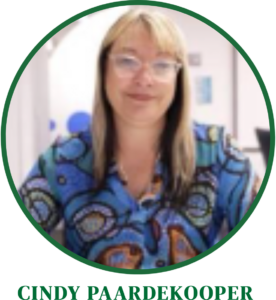
Cindy Paardekooper is Kokatha woman from the far west coast of South Australia based in Adelaide.
Cindy is an Aboriginal Consultant for Palliative Care Education, Aged care and involved in other Aboriginal affairs, both in the Northern Territory, and in South Australia. Cindy has been extensively involved in the National PEPA Program and other National and state level Palliative Care Projects.
In 2022 Cindy was the co-lead of the South Australian Approach to Aboriginal Comfort Care-Pathways to Palliative Care for Aboriginal and Torres Strait Islander people.
Cindy has been instrumental in delivering Cultural capability training to all service providers to improve the quality of palliative care for Aboriginal and Torres Strait Islander peoples by building capacity in frontline staff to deliver care that is culturally safe, relevant, and responsive. This education promotes access to, and uptake of palliative care services by Aboriginal and Torres Strait Islander peoples through improved community awareness and understanding of palliative care, building capacity in frontline staff to share knowledge around palliative care services, and to be aware and equipped to support Aboriginal patients on their end-of-life journey.
She is the SA Health Representative on the National Aboriginal and Torres Strait islander Palliative Care Advisory Group and other Palliative Care committees.
Cindy maintains a strong desire to support and advocate for Aboriginal people, their families and Communities to achieve improved life outcomes and maintain strong connections to culture, kin and country.
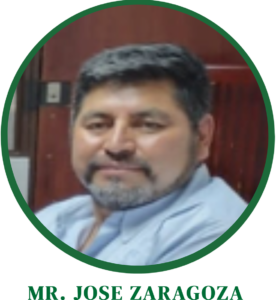
Mr. Jose Zaragoza is a Tutunakú language speaker with special recognition and awards in the Totonac language. Mr. Zaragoza is licensed in Pedagogy from the National Pedagogical University and master’s degree from the Faculty of Philosophy and Letters of the National Autonomous University of Mexico (UNAM). He is also a member of the Scientific Committee at the International Congress of Humanities in Health, a translator in the Ninth Documentary of the INAH diversity series; and Director of master’s Thesis at the National Pedagogic University (UPN). Mr. Zaragoza is a Professor of Totonac Language and Culture IIA and Medical Anthropology at the Faculty of Medicine (UNAM) with publications in book chapters and magazines. He is a member of the Society of History and Philosophy of Medicine (currently treasurer of this Society) and the Organization of Intercultural Interpreters and Managers in Indigenous Languages, A.C., National and International Conferences.
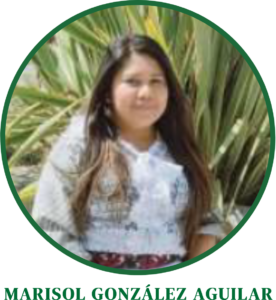
Orgullosamente Otomí, originaria de San Cristóbal Huichochitlán, Toluca, Estado de México, México.
Hablante de otomí desde los 7 años, aprendió con abuelos paternos y maternos hablantes de la lengua materna y sus padres son quienes le motivaron a hablar otomí, desde niña aprendió a tejer la palma para la elaboración de sombreros, trabajo que desempeño por años y de lo cual se sostuvo en los estudios.
Tiene conocimiento de la medicina tradicional que aprendía con su abuela materna, de donde conoció como aliviar enfermedades, debido a que en la comunidad no había médicos.
Actualmente ha trabajado en la elaboración de traducciones en otomí para el CEDIPIEM (Consejo Estatal para el Desarrollo Integral de los Pueblos Indígenas), la Cámara de Diputados y varios Municipios del Estado de México, para dar a conocer documentos oficiales en la lengua materna.
Fotógrafa, artesana y Licenciada en Administración y Promoción de la Obra Urbana, Especialista en Accesibilidad Universal en la Arquitectura y la Ciudad, de la Facultad de Arquitectura y Diseño, egresada de la Maestría en Estudios de la Ciudad, de la Facultad de Planeación Urbana y Regional, UAEMex.
Su pasión por la fotografía y el cortometraje comenzó hace más de 8 años, fotografiando los eventos culturales y tradicionales de la comunidad Otomí a la cual pertenece, lo que le ha permitido ser acreedora a distintos reconocimientos de carácter nacional e internacional. Actualmente es docente de Accesibilidad en el Urbanismo en el Instituto Tecnológico de Chetumal, en donde trabaja para las mejorar las condiciones de accesibilidad de la población mayor en las ciudades y las comunidades rurales.
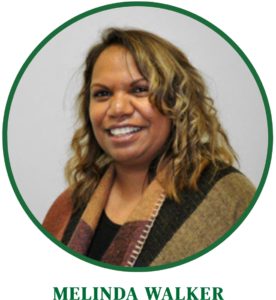
Melinda Walker, a proud Gumbaynggirr woman hailing from the East coast of Australia, has dedicated her life to providing compassionate care and support to those in need. Currently residing and working on Miriwoong Country in Western Australia, Melinda serves as the Senior Social Worker in Palliative Care, embodying the values of empathy, cultural sensitivity, and advocacy in her role.
With a deep understanding of the complexities of social work and a passion for improving the lives of others, Melinda brings a wealth of experience and knowledge to her position. She holds a strong commitment to ensuring that all individuals, regardless of background or circumstance, receive the care and respect they deserve during their end-of-life journey.
Melinda’s connection to her Gumbaynggirr heritage infuses her work with a unique perspective, allowing her to incorporate traditional practices and cultural approach to palliative care. By bridging the gap between Western medical practices and Indigenous cultural traditions, Melinda strives to create a holistic and culturally appropriate support system for her clients and their families.
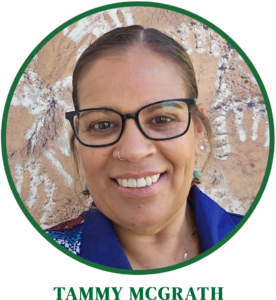
A proud Wongatha, Ngadju, Mirning Yamitji, Woman from the Goldfields, is encouraging all Aboriginal people and clinicians alike, to get comfortable with yarning about dying and death. Tammy believes demystifying the notion of palliative care early on will close the gap and improve access to good supportive care with the appropriate services on in community on Country. Tammy states “This can all be achieved by working together and inspire mob, in their communities to yarn, plan, prepare to bring spiritual cultural control to the patient, family, mob and the local community.” As State Coordinator for Palliative Care– Aboriginal Health at WA Country Health Service, Tammy’s passion for palliative care is recognised. Tammy has worked in the health sector for the past 15 years across Aboriginal Medical services in WA and QLD as an Aboriginal Health Practitioner, where her experience and networks have grown. I’ve been able to provide a strong cultural guidance and help to educate colleagues and community on best safe cultural practise when working with and for the Aboriginal Community at end of life. It takes a village to raise a child and a community approach at end of life, Palliative care is everyone’s business not just us specialist.